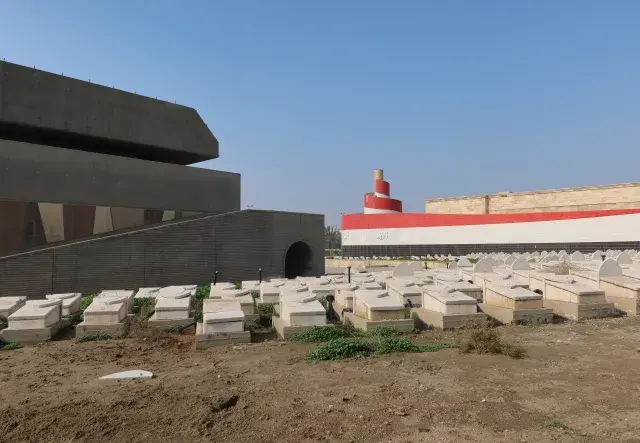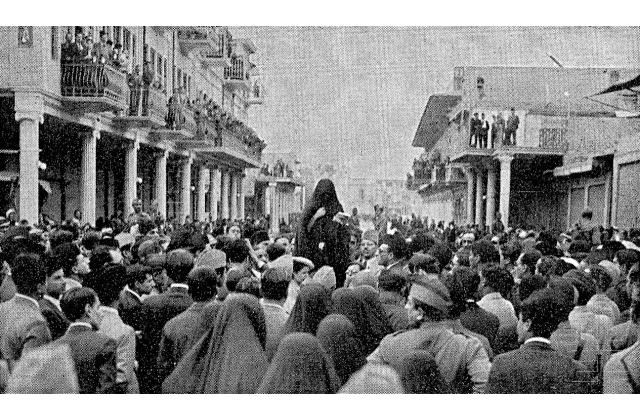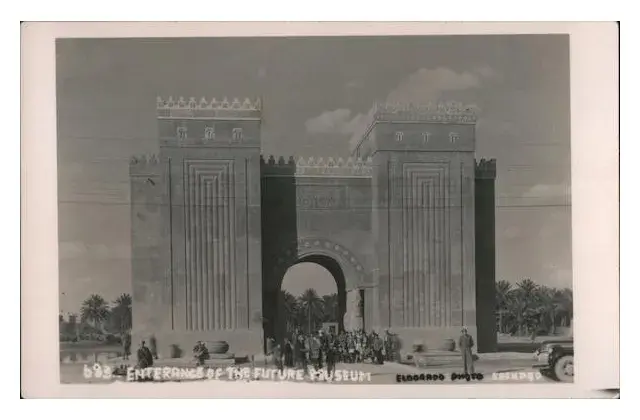The Economic Embargo on Iraq (1990 - 2003)

Within six weeks, the US-led coalition’s air bombardment – known as Operation Desert Storm – in the Second Gulf War destroyed more of Iraq’s economic infrastructure countrywide than had eight years of war with Iran. The impact of the war itself on the population was enormous, and compounded by UN Security Council resolution no. 687 (passed on 3 April 1991) which officially ended the Second Gulf War. Part of the resolution was that Iraq would give formal recognition to the independent state of Kuwait, to commit itself to payment of war reparations and to open up all sites in Iraq for inspections by UN teams searching for evidence of Iraq’s suspected programme of nuclear, chemical and biological weapons.
The United Nations Special Commission (UNSCOM) started working in May 1991. Instead of 45 days, the commission spent years working in Iraq because of the denial of Iraqi authority to give access. A turning point occurred in summer 1995, when General Hussein Kamel, Saddam’s son-in-law and key force in managing weapons of mass destruction, fled to Jordan and gave insights into Saddam’s weapon programmes. As a result, the Iraqi authority was forced to provide better access.
The destruction of weapons and associated facilities was carried out mainly by Iraq, under supervision of UNSCOM. Saddam suspended all cooperation with UNSCOM on 31 October 1998. Even though he retracted his position shortly afterwards, to not risk another military strike, UNSCOM eventually and officially withdrew from Iraq on 15 December 1998. The next day, Iraq was struck by a four-day bombing campaign on army forces and assumed weapon facilities. This US and UK military operation is widely known as Operation Desert Fox. In 2004, the Duelfer Report concluded that Iraq’s weapons of mass destruction (WMD) capability had been “essentially destroyed in 1991 […].”
The WMD programme by resolution 687 was linked to the already existing sanctions proposed by resolution 661 in August 1990, which stated that the sanctions will remain in effect until Iraq has met the conditions of resolution 687. In other words, the Security Council put a comprehensive embargo on Iraq. The effect of Saddam’s policy and the UN sanctions led to hyperinflation, widespread poverty and malnutrition. This, however, had little impact on the regime’s priorities until the Iraqi economy hit rock bottom towards the end of 1995. This forced the Iraqi government in 1996 to agree to UNSC resolution No. 986 Oil-for-Food Programme (OFF). Under this resolution all Iraqi residents were entitled to receive the monthly Oil-For-Food basket with food and basic medical supplies and it was estimated that 60 percent of the population were totally dependent on it. The programme had undesired side effects, such as illicit revenues for the Iraqi political elite, and this in turn undermined the effectiveness of OFF over the years. Also, the universal Public Distribution System (PDS), instituted in 1990 in response to food shortages after the UN-imposed sanctions, fell prey to misuse. When Dennis Halliday, Head of the United Nations Humanitarian Programme in Iraq, resigned from his post in 1998, he stated: “I refuse to continue to take Security Council orders, the same Security Council that had imposed and sustained genocidal sanction on the innocent of Iraq. I did not want to be complicit […].” The Oil-For-Food programme later turned out to be scandalous. According to Transparency International (TI), “[…] Saddam extorted bribes and surcharges from handpicked buyers of Iraqi oil and vendors of humanitarian goods, and is estimated to have amassed between US$ 1.7 billion and US$ 4.7 billion, according to different studies […].” Additionally, after 1998 a comprehensive smuggling process across national borders started, which not only benefited Saddam’s regime but also enabled him to fund his military and maintain control despite international sanctions.
The economic embargo was a turning point in the living conditions and, consequently, the social relations in the country and particularly for the role of women. Whoever could, left the country, especially families from the middle class which used to be the backbone of the country. Iraq had been well-known for its highly educated academics and engineers. The educated middle class diminished, and education lost its status as a key form of social capital. Instead, financial status and connections to centres of power – governmental, tribal, or religious – became the primary determinants of social standing. The remaining middle class was no longer considered the social capital it once had been. It was replaced by financial status and proximity to centres of power, be they governmental, tribal or religious. Due to the economic hardship, the Iraqi started looking to their tribal lineages to take refuge. This in turn meant adopting tribal customs, which included specific norms that defined how to treat women, how to deal with women’s education and work, as well as family status. People returned to practice customs and traditions that they had previously rejected. The latter fact was additionally shaped by Saddam’s national “Faith Campaign” which he announced in June 1993. The inauguration of the Faith Campaign began a steady proliferation of regime-sponsored religion in Iraq. Contrary to some misinterpretations, that Saddam shifted course, the campaign aimed to accelerate the spread of the Baath Party’s interpretation of religion throughout Iraqi society, which did not change since Saddam had started his presidency.
This article was written by Hella Mewis and is licensed under CC BY-NC 4.0.






